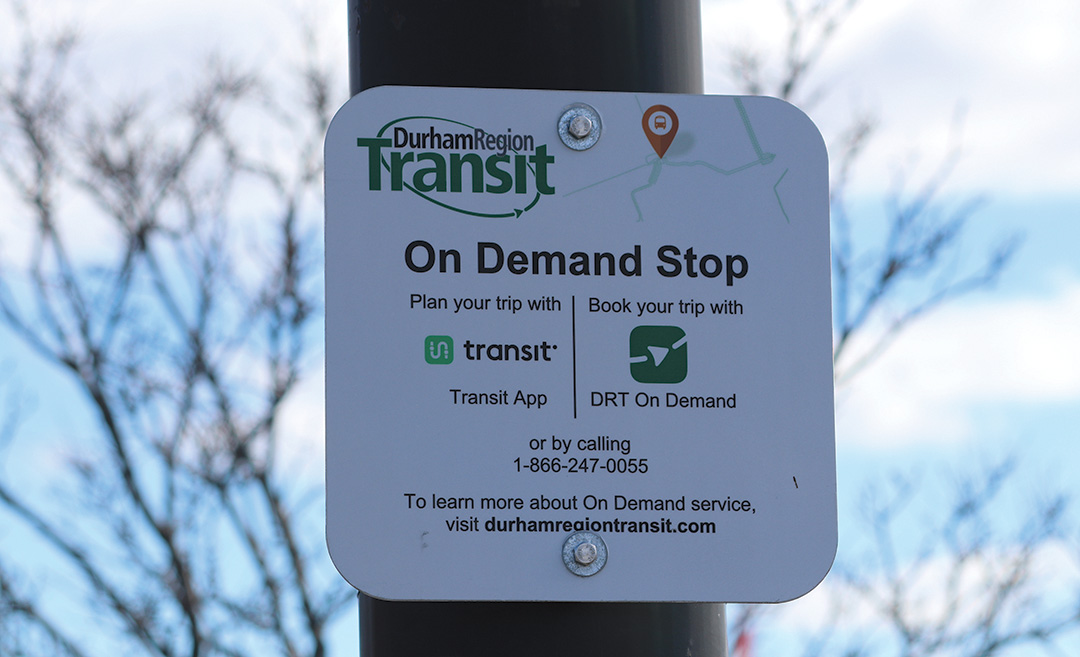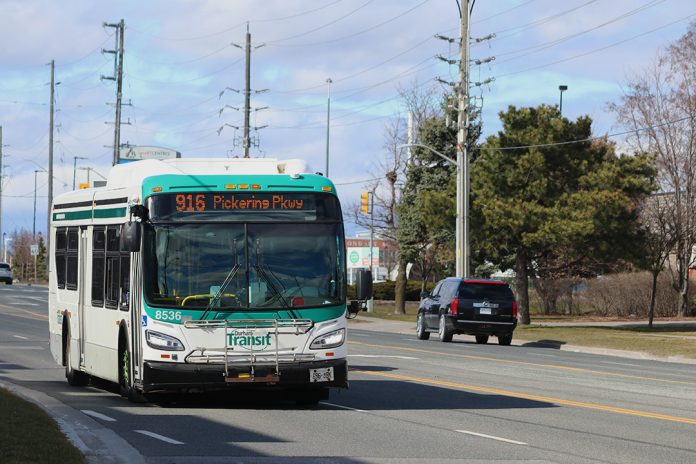Durham Regional Transit (DRT) has rejected the Oshawa City Council’s recommendation to resume the Harmony Taunton Smart Centres Stop service.
The Oshawa Accessibility Advisory Committee initially submitted the recommendation to the council’s Economic and Development Services Committee following the removal of the stop early this year.
The advisory committee highlighted how the stop’s removal negatively affects people with disabilities, urging the Durham Regional Transit (DRT) to reconsider and restore the stop at the shopping plaza for better accessibility.
At the March 4 committee meeting, Oshawa councillors referred the recommendation to the SRT for reconsideration.
Bill Holmes, the general manager of DRT, explained that the service was removed because the property owner did not renew the lease for washroom facilities at the Harmony Terminal, which drivers used during breaks. As a result, they had “to look for an alternative location.”
Nicole Lysaght, manager of transit policy and planning, said another reason for the change was the congestion at the terminal. She said the simultaneous entry of excessive buses caused delays, hindering timely destination arrivals. Lysaght said there are no plans to reverse the decision.
Lysaght suggested that people with disabilities can use the “specialized transit service” they offer.
Ali, a Durham College student with a disability who did not want to be identified by his full name, said the changes had affected him greatly. He has issues walking, and after this change, he had to walk for 20 minutes to get to a bus stop. He says the situation was difficult because he sometimes could not walk to the bus station.

Ali said he has now started using the specialized bus service for people with disabilities. He said it took him a very long time to enroll in the service because he had to navigate “a lot of doctor forms to be accepted.” Even with the specialized service, Ali says there are issues. He says the specialized service is “rarely frequent,” and at times, he has to wait for 5-6 hours.
According to DRT, they are experiencing record levels of ridership demand across services, and capacity is being added to the service as resources become available.
Regional Council recently approved the 2024 DRT budget, which will result in an approximately 15,000 additional service hours for the On Demand network.
The increased capacity will improve reliability of the service and is expected to reduce customer wait times. DRT is also assessing options to modernize service delivery policies towards the objective to eliminate the need for advance trip bookings.




